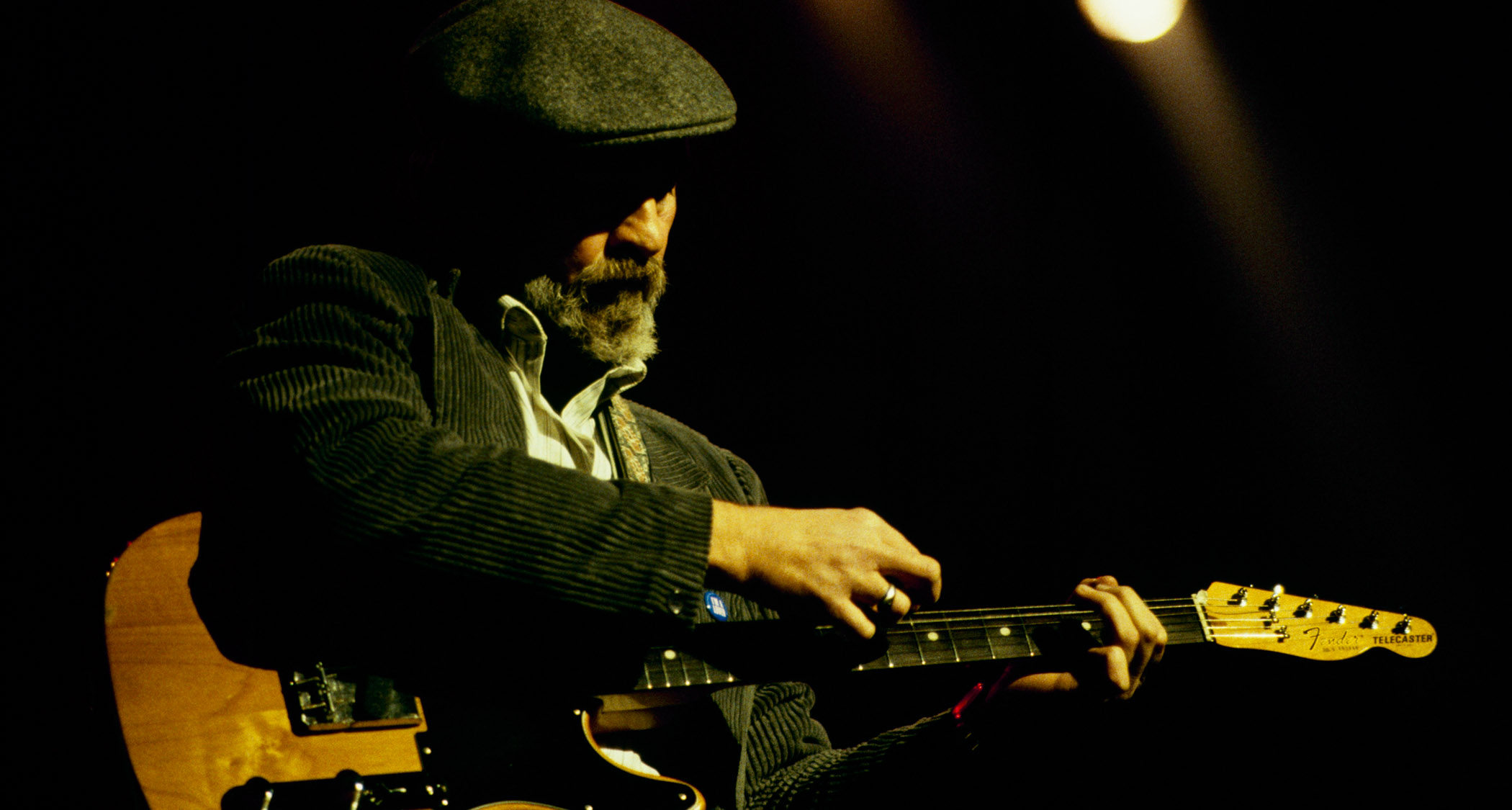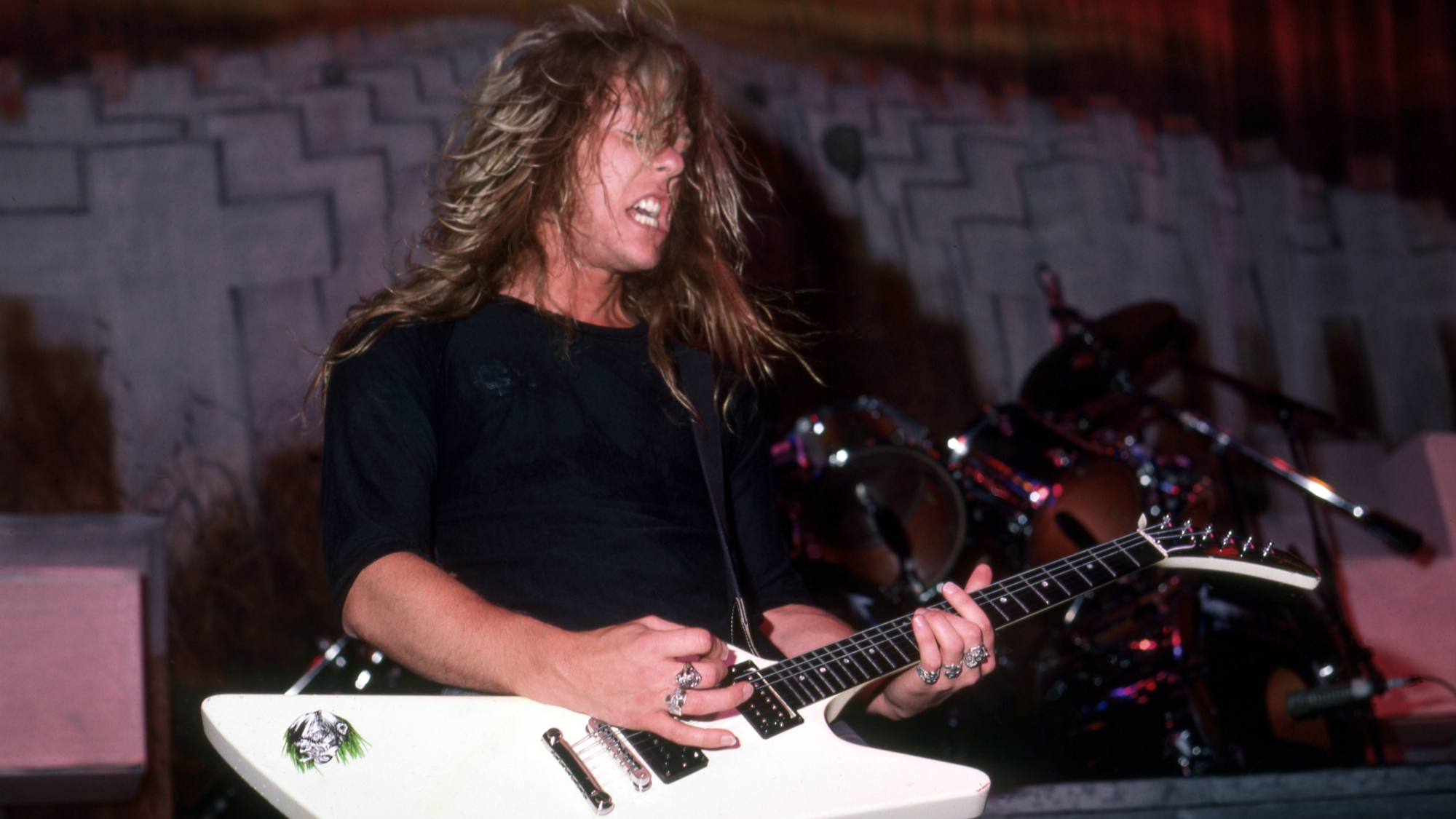A Stratocaster master and stompbox pioneer with an astonishing vibrato, Robin Trower's blues guitar style is up there with the best
Learn the licks of the British blues guitar great who took Hendrix's six-string revolution and ran with it

Robin Trower is a British blues-rock legend with an instantly recognisable sound, known for his displays of real fire and skill. Admired by fans around the globe for his artistic individuality, despite not becoming a household name as is arguably deserved, he is important in the evolution of blues guitar.
Trower was born in London in 1945 and grew up in Essex, where he developed a keen interest in his parents’ vinyl collection. Elvis Presley, and particularly Elvis’s guitarist, Scotty Moore, inspired Trower to pick up the instrument that he heard bursting from the speakers.
Musical explorations led him to the blues, and he cites BB and Albert King as two of his biggest influences. The greatest inspiration for his style, though, is Jimi Hendrix, whom Trower (quite rightly) revered as a truly groundbreaking musician.
This appreciation encouraged Trower to switch from the Gibson guitars he had favoured early on in his career, particularly during his four-year stint with rock group Procol Harum, and become a Stratocaster devotee as he embarked on a solo career with his own power trio.
He also adopted various effect pedals, namely, wah pedal, fuzz, and Uni-Vibe, which at the time were still novel and thrilling contraptions. These new devices, along with his talent for composition, allowed Robin to explore the psychedelic side of British blues-rock, and his music delivered a fresh sound that resonated with audiences in both Britain and the USA, where he enjoyed mainstream radio airplay and multiple stadium tours.
Part of the appeal was Trower’s emotive style, which is simultaneously both elegant and exciting. His fiery pentatonic-based lead is complemented by funk-inspired rhythm chops and soulful chord progressions, all delivered with a colossal tone achieved by a cranked Marshall amp or two. Throw in the Uni-Vibe for a swirling, throbbing, psychedelic sound, and you have a winning formula.
His note choice is excellent, and he manages a perfect balance of speedy passages and long, sustained notes. His expressive command of string bends is well regarded, and his vibrato, which is fast but controlled, is up there with the best.
He incorporates faster passages that seem to sway and amble across the bar lines, employing odd-time groupings in a non-methodical fashion as though he is switching gears within a phrase.
He is also a big fan of double-stops, oblique bends, and 6th intervals, often combining two notes that, with overdrive, create a run that’s rich with harmonic information. All in all, Trower is a force to be reckoned with, an exciting and impressive musician, and a great source of inspiration for us all.
Get the tone
Amp Settings: Gain 6, Bass 5, Middle 7, Treble 5, Reverb 4
Trower is a diehard Stratocaster user, so a guitar with single coil pickups will get you closest to his tone. He pairs this with a Marshall amp with a fair amount of gain for a full, fat tone. Another big part of Trower’s sound is his use of a Uni-Vibe effect, which gives his tone that swirly, pulsing, psychedelic element. If you have one then great, if not reverb or delay will lift your sound.
Study piece 1
Our first study shows how Robin would approach a solo in a more traditional blues style track. Some of the rhythms can be tricky to capture, so work on small sections at first.
In bars 7-9, we see how Robin would often use 6th intervals to spell out the underlying dominant chord, which is worth exploring in your own playing. It’s also important to focus on the string bending intonation and vibrato if you want to capture some of Trower’s flair.
Study piece 2
This track leans on a 7#9 chord in a nod to (arguably) Trower’s biggest influence. Here we see the 6th interval again, as well as plenty of oblique bends and double-stops, a common trait of Trower’s. Aim for a strong attack with plenty of energy for an authoritative delivery.
Get The Pick Newsletter
All the latest guitar news, interviews, lessons, reviews, deals and more, direct to your inbox!
David is a guitarist, producer, and educator. He has performed worldwide as a session musician, with artists and bands spanning many musical genres. He draws upon over 20 years of experience in both live performance and studio work, as well as numerous composing credits. As a producer, he's collaborated with artists across genres, including pop, RnB, and neo soul. David holds a master’s in jazz guitar and teaches at BIMM London and the London College of Music. He is also a regular contributor to Guitar Techniques magazine, sharing his love of blues in a monthly column.
“There are so many sounds to be discovered when you get away from using a pick”: Jared James Nichols shows you how to add “snap, crackle and pop” to your playing with banjo rolls and string snaps
Don't let chord inversions bamboozle you. It's simply the case of shuffling the notes around








![Joe Bonamassa [left] wears a deep blue suit and polka-dotted shirt and plays his green refin Strat; the late Irish blues legend Rory Gallagher [right] screams and inflicts some punishment on his heavily worn number one Stratocaster.](https://cdn.mos.cms.futurecdn.net/cw28h7UBcTVfTLs7p7eiLe.jpg)


